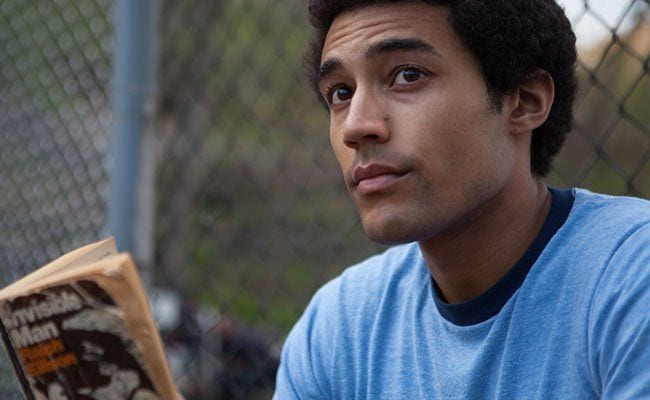
There are two distinctly different types of biopics. One is centered around and worried about the facts, and the other is about capturing a certain impression or feeling. For most filmmakers, getting the specifics right about a famous or notable individual is all that matters. But for others, painting a portrait of someone who is clearly complicated outside their celebrity is all that matters.
Barry falls easily into the latter category. It’s an impressive attempt to explain the college days of current US president, Barack Obama, and how his treatment during that time came to form his personal and political philosophy. It’s a marvelous movie, made even more so by the time in which it’s being released. One would have a hard time envisioning a similar project about the contentious figure who is about to become our new Commander In Chief.
From the very beginning, Obama’s mixed race heritage and his multinational childhood become lightning rods for outright racism and some more “subtle” versions of prejudice. The film uses his complicated personal status both for and against him. He doesn’t fit in and that’s good. He doesn’t fit in and that’s bad. Such uncertainty marks the growing pains the character experiences, and highlights where his ambitions lie. They also allow for the character to act as a mirror, reflecting back what he faces on a regular basis.
The plot centers on Barry’s (Devon Terrell) arrival at Columbia University during his junior year of college (the name “Barack” and “Obama” are nary mentioned) and his interactions with his Pakistani roommate (Avi Nash) and his experiences dating Caucasian classmate, Charlotte (Anya Taylor-Joy). He must also deal with a distant, absentee father, a compassionate if cautious mother (Ashley Judd) and a society still struggling with the aftermath of the Civil Rights Movement. Vignettes play out in a randomized way, creating a portrayal more than a plot. We don’t need all that story, however. We’re here for insights, and Barry definitely delivers in that regard.
For a sitting President to have two films exploring his past is unusual enough. Barry betters Southside With You because it’s not obsessed with meeting both the needs of the biography (and the addition of a young FLOTUS, Michelle) with those of the Rom Com. Instead, it wants to build a myth, a backstory which uses the whole ‘stranger in a strange land’ conceit to wonderful effect. It helps that Barry the character is an outsider in his own country. It would become the basis for the main critique against his political run (the whole Birther movement) as well as how he ends up viewing himself.
But Barry the film is fascinated with the shadings of Obama’s story, as well. In this film, the future POTUS chain smokes, partakes of a bit of weed, and more or less matures from unsure young man to confident adult before our eyes. The trials are typical — a suspicious security guard who ejects him from the Columbia campus on his first night there for ‘MWB’ (matriculating while black), the lack of respect from both black and white communities, the scandalous looks the African American women give him over his white date — but handled in a manner which makes what happened to him 30 years later all the more potent.
The performances are near perfect, especially given the 24/7 saturation of the President and his personality provided by the never-ending news cycle. Devon Terrell brings so much quiet dignity to his portrayal of the future President that you have to take a moment to divest yourself from the man we’ve watched run this country for the last eight years. Once removed, you marvel at what Terrell pulls off. He not only sounds like Obama, but he exudes the aura of a man in the making, providing parts to the known public persona without resorting to grandstanding or exploitation. The rest of the cast is equally good.
Director Vikram Gandhi does a nice job of capturing the time without resorting to obviousness, and the script from Adam Mansbach finds the right moments in Obama’s youth to fill in the blanks of his future persona. In fact, both Southside With You and Barry are excellent entries into the mystique this man carries. Even before he became the leader of the free world, he had a panache that few could ignore, and many wanted to follow and/or emulate.
Barry is not perfect, however. It’s hemmed in by the period it’s depicting, and really doesn’t try to forecast how a man of African American descent worked toward and succeeded in obtaining high office in the contemporary US. It’s not a prediction as much as a meditation on how someone like a young Obama navigates a world that he will, at one point, rule. For all its positives, Barry can still feel a bit slight. There’s clearly much more to the man than what happened way back in the early ’80s. Barry doesn’t deal with that, for good, and for bad.

